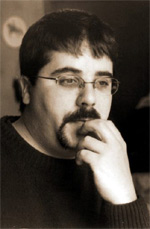BALKAN WEATHER, EVEN BALKAN SPRING WEATHER, was not pleasant to General von Grunn, leaning heavily back behind the bulletproof glass of his car. May 4th—the English would call it St. George’s Day, after their saint who was helping them so little. The date would mean something to Heinrich Himmler, too; that weak-chinned pet of the Fuehrer would hold some sort of garbled druidic ritual with his Schutzstaffel on the Brockenburg. Von Grunn grimaced fatly at thought of Himmler, and leaned forward to look out into the night. An armed car ahead, an armed car behind—all was well.
“Forward!” he growled to his orderly, Kranz, who trod on the accelerator. The car moved, and the car ahead took the lead, into the Borgo Pass.
Von Grunn glanced backward once, to the lights of Bistritz. This country had been Rumanian not so long ago. Now it was Hungarian, which meant that it was German.
What was it that the mayor of Bistritz had said, when he had demanded a semi-remote headquarters? The castle along this pass, empty—ready for him? The dolt had seemed eager to help, to please. Von Grunn produced a long cigarette. Young Captain Plesser, sitting beside him, at once kindled a lighter. Slim, quiet, the young aide had faded from von Grunn’s consciousness.
“What’s the name of that castle again?” inquired the general, and made a grimace when Plesser replied in barbarous slavic syllables. “What’s the meaning in a civilized tongue?”
“Devil’s castle, I should think,” hazarded the captain’s respectful voice.














